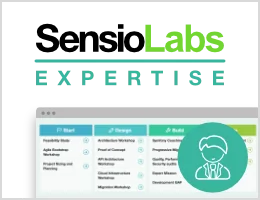Prevent Running the Same Console Command Multiple Times
You can use locks to prevent the same command from running multiple times on the same server. The Lock component provides multiple classes to create locks based on the filesystem (FlockStore), shared memory (SemaphoreStore) and even databases and Redis servers.
In addition, the Console component provides a PHP trait called LockableTrait
that adds two convenient methods to lock and release commands:
1 2 3 4 5 6 7 8 9 10 11 12 13 14 15 16 17 18 19 20 21 22 23 24 25 26 27 28 29 30 31 32
// ...
use Symfony\Component\Console\Command\Command;
use Symfony\Component\Console\Command\LockableTrait;
use Symfony\Component\Console\Input\InputInterface;
use Symfony\Component\Console\Output\OutputInterface;
class UpdateContentsCommand extends Command
{
use LockableTrait;
// ...
protected function execute(InputInterface $input, OutputInterface $output): int
{
if (!$this->lock()) {
$output->writeln('The command is already running in another process.');
return Command::SUCCESS;
}
// If you prefer to wait until the lock is released, use this:
// $this->lock(null, true);
// ...
// if not released explicitly, Symfony releases the lock
// automatically when the execution of the command ends
$this->release();
return Command::SUCCESS;
}
}The LockableTrait will use the SemaphoreStore if available and will default
to FlockStore otherwise. You can override this behavior by setting
a $lockFactory property with your own lock factory:
1 2 3 4 5 6 7 8 9 10 11 12 13 14 15
// ...
use Symfony\Component\Console\Command\Command;
use Symfony\Component\Console\Command\LockableTrait;
use Symfony\Component\Lock\LockFactory;
class UpdateContentsCommand extends Command
{
use LockableTrait;
public function __construct(private LockFactory $lockFactory)
{
}
// ...
}7.1
The $lockFactory property was introduced in Symfony 7.1.
This work, including the code samples, is licensed under a
Creative Commons BY-SA 3.0
license.

